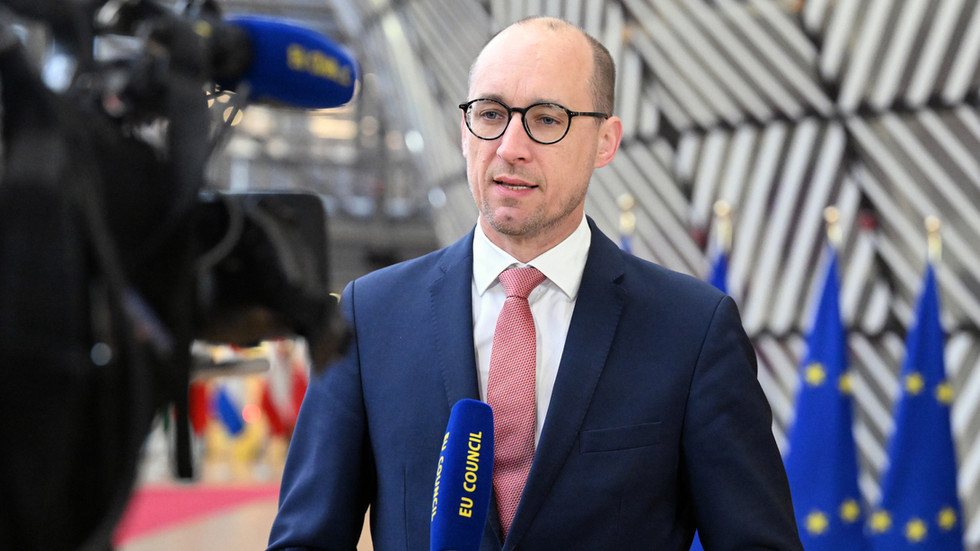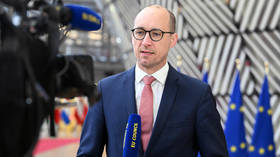
Moscow has previously warned that such a move would undermine “the legal foundations of European and international law”

Belgian Finance Minister Vincent Van Peteghem. © Dursun Aydemir/Getty Images
The EU is “close to a political agreement” on seizing the profits generated by Russia’s central bank reserves that remain frozen in connection with Ukraine-related sanctions, Belgian Finance Minister Vincent Van Peteghem said on Sunday.
The West immobilized around $300 billion in assets belonging to the Russian central bank following the start of hostilities in February 2022 in a move denounced by Moscow as essentially “theft.” Around $280 billion of this sum is held in the EU, primarily in the Belgium-based depositary and clearing house Euroclear.
While the US and UK have called for outright seizure of those funds, numerous reports suggest that EU countries are taking a more cautious approach, citing the lack of a legal basis for such a drastic move as well as fears of Russian retaliation.
Meanwhile, EU officials have been mulling a plan to apply a windfall tax on the profits generated by the assets. According to Eurostat, the reserves frozen in the EU generated €4.4 billion ($4.7 billion) in interest income in 2023 alone. In March, a senior EU official projected, as quoted by Reuters, that €15-20 billion ($16-21 billion) would be generated in after-tax profits by 2027.

Read more
The same month, the EU’s top diplomat, Josep Borrell, proposed handing over 90% of those profits to the European Peace Facility to be used for procurement of arms for Ukraine. The rest would be transferred to EU budgets to support Kiev’s defense industry.
Now, according to Peteghem, EU nations appear to be close to finding common ground on this plan. The minister said, as quoted by Bloomberg, that the first tax collection could take place as early as July 1.
However, Politico reported last month that Hungary, Slovakia, Malta, and Luxembourg have challenged the idea of using the funds to aid Ukraine. While the first two countries are opposed to procuring weapons for Kiev altogether, the latter two have reportedly voiced misgivings about not being consulted on such a far-reaching plan.
Moscow has vehemently denounced the West’s push to use its immobilized funds to support Ukraine. Commenting on Borrell’s proposal last month, Kremlin spokesman Dmitry Peskov warned that it could destroy “the legal foundations of European and international law.”
He also noted that transferring the Russian funds to Kiev would tarnish the bloc’s image and cautioned that those advancing the EU’s plan “will be subject to legal prosecution for many decades to come.”




